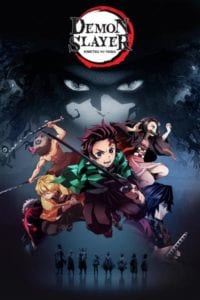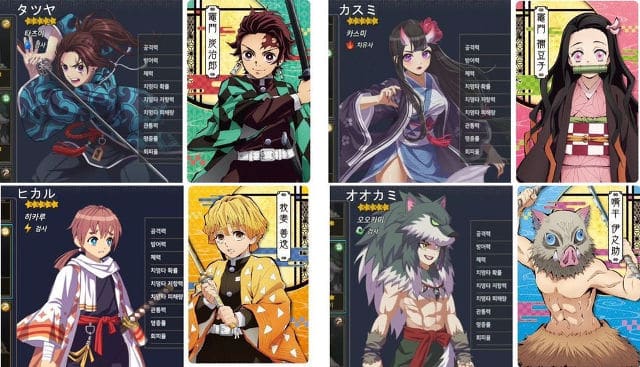Korean Game Shuttered Over Plagiarism Scandal
When the fans, not lawyers, come calling...

Demon Slayer: Kimetsu no Yaiba is a manga and anime that has enjoyed a great deal of mainstream success all over the world. Now one of the most popular animes, Demon Slayer has a very dedicated fanbase and one that quite clearly does not take kindly to what they see as someone attempting to rip it off.
This was the lesson that video game developer Tennine learned recently. On April 24, the company released a mobile role-playing game entitled Gwisal-ui Geom (English: The Ear-Slaying Sword) that was almost immediately blasted for being too similar to Demon Slayer.
Some of the issues listed included that the game’s protagonist bore a very similar physical appearance to Demon Slayer‘s. The two characters also shared a similar plot, namely having their family killed by demons and then going on a quest to avenge them. Other elements including styling and secondary characters also bore a strong resemblance.
The backlash was swift and severe with angry Demon Slayer fans taking to various forums, including the game’s official sites, to air their grievances. Within just five days, Tennine announced that they were ceasing the game’s operations. Having already blocked microtransactions, the game was pulled from all app stores. Refunds were offered for those who had purchased in-game items.
The closure announcement did not cite the plagiarism directly. Instead, it said that (automatically translated) “In game development, due to our immaturity, we gave many people a feeling of discomfort, and we came to the conclusion that we could not continue operation.”
But what’s interesting about this case isn’t what happened, but what didn’t happen. At no point in this, that we are aware of, did anyone connected with Demon Slayer, anime or manga, take any action. This is was solely the work of the fans.
That should be a cautionary tale for anyone that wants to follow in Tennine’s footsteps.
The Second Court
Most likely, Tennine didn’t set about to create a complete Demon Slayer knockoff. They most likely wanted to create a game that would appeal to Demon Slayer fans and be familiar enough to siphon off some of that goodwill but different enough to avoid legal trouble or plagiarism allegations.
Quite simply, they went way too far with it, taking far more than a wink and a nod.
However, it’s still unclear if anything they took amounts to copyright infringement. Without a direct comparison between the two, which is now impossible, it can’t really be determined. That said, most of the comparisons I’ve read deal with the two having similar styles, backstories, etc. Depending on what was copied and how much was taken, it’s very possible that this case was in the space between obvious plagiarism and actionable copyright infringement.
Ultimately, the question is purely academic. The game was not shuttered with a lawsuit or the threat of legal action, but rather, by the fans.
And that is one of the challenges when dealing with these cases. There are always two courts, the court of public opinion and the court of law. It’s perfectly possible to win the fight in one but not the other and suffer accordingly.
For Tennine, this situation was likely even worse. The fans that were rallying against them were the same ones that they were trying to appeal to. These were the exact people they hoped would be interested in the game and, instead, they were openly attacking it.
Compare this to the Star Trek: Discovery case. There, CBS is likely heading to an easy victory in the court of law but is still being called plagiarists fairly broadly. However, the loudest people in that chorus are the ones that already had an issue with Discovery (and modern Star Trek more broadly) and aren’t the audience CBS is counting on or trying to appeal to.
In short, CBS has a much easier time shrugging off the attacks against it than Tennine ever could. Combine that with the fact that the allegations against Tennine seem to carry much more legitimacy and it’s easy to see why Tennine felt like it had no choice but to retreat.
Bottom Line
Homage is difficult to get right under the best of circumstances. It requires that your audience be familiar with your reference, you have to use enough to make that reference clear but not so much that you get accused of plagiarism or copyright infringement. It can be a difficult balancing act.
However, this wasn’t homage. It was an attempt to commercialize goodwill for another product while trying to avoid either plagiarism allegations or a copyright infringement law. It didn’t work. They went way too far and took far too much for it to work.
If they had taken just one or two elements, such as hunting demons or the styling, it could have been ignored. Instead, with all of the similarities between the two, it was inevitable that it would be called out.
Simply put, that is the danger of this kind of project. If you go too far with the similarities, you risk not just legal action but angering the exact fans that you are trying to reach.
I look at it as yet another reason to try and create something original and to not try and ride on the coattails of whatever work is popular at the time.
Want to Reuse or Republish this Content?
If you want to feature this article in your site, classroom or elsewhere, just let us know! We usually grant permission within 24 hours.

